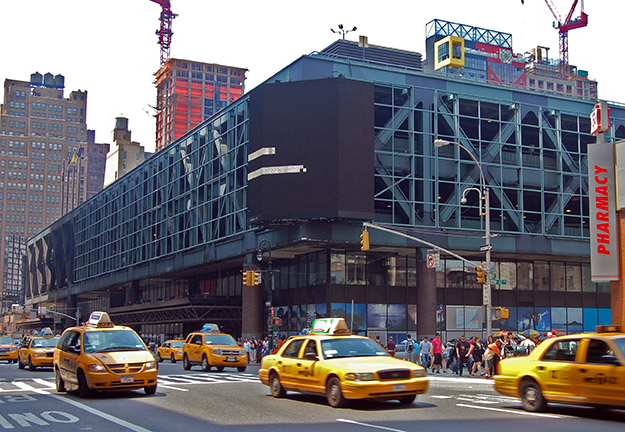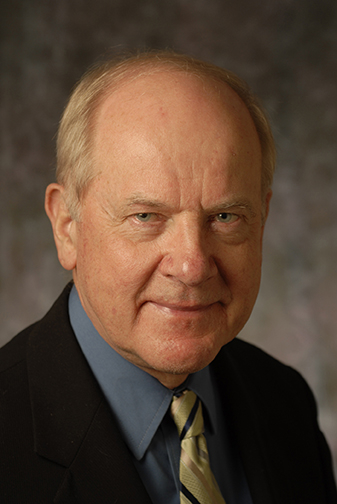Reducing Crime by Making It Harder to Commit
Rutgers criminologist Ronald Clarke’s theory of deterrence earns him an international award

Think back to the appalling atmosphere during the late 1980s at New York’s Port Authority Bus Terminal – where robberies, prostitution, pickpocketing, assaults and other offenses were so common that Malcolm Gladwell wrote in the Washington Post that “the building was uncontrollable.
By 1994, reported crimes had fallen 56 percent – after the Port Authority took steps that included reconfiguring public spaces to eliminate secluded areas in the terminal, and improving the flow of foot traffic by removing architectural obstacles. Those enhancements – documented in the 1995 Rutgers study Redesigning Hell – validated a theory of criminal behavior put forth nearly two decades earlier by Ronald Clarke, a professor at the School of Criminal Justice at Rutgers University-Newark.
According to the British-born Clarke, who was the school’s dean from 1987 to 1998, “If you make it more difficult for crimes to be committed, there will be fewer crimes. That seems so obvious to me.”
The Port Authority, he says, is a prime example. “The bus terminal was a horrible place and it’s completely different now. And that’s because of redesigning the place to design out opportunities.” There even is evidence, Clarke adds, that relatively few offenders at the terminal moved out and began committing crimes elsewhere. When crime at the bus station became too difficult, he says, apparently many just stopped committing crimes.
Clarke has drawn his share of critics for his theory of crime as opportunity. “At first, my ideas went nowhere in criminology and were widely ignored,” he recalls. “Most criminologists say that people commit crimes because they are – at the very least – pathological and disturbed for reasons such as poverty or bad upbringings. I think there is something to that, of course. But these people still have to make the rational choice to commit a crime, and I am convinced they won’t unless given the opportunity.”
Clarke believes the criminologists who dismiss him are more interested in why criminals are criminals – and how you can change them – than in actually reducing crime. “I don’t believe you can change them. It’s very expensive to put them in prison, and putting them in prison causes many other problems for society and the offender’s family. Making crimes more difficult to commit is a superior approach.”
Opportunity stops knocking

He also cites a global trend – a steady drop in crime in recent years nearly throughout the developed world. He says he hardly deserves credit for that, but suggests his ideas offer a good explanation. “There is a lot more security than there used to be,” he points out. “Credit cards have more security built in. New houses have much more secure doors and windows and other things that prevent burglars getting in, and cars are also harder to steal.” All of those advances, says Clarke, have removed opportunities for would-be criminals to commit crimes without being caught.
And now, Clarke has even more validation. He just learned he will receive the Stockholm Prize in Criminology next June in the Swedish capital along with British criminologist Patricia Mayhew – with whom he co-authored the 1976 paper that laid out his opportunity theory.
“Naturally I am extremely pleased,” he says of the award, “and not just for myself. I feel this vindicates the general approach and helps the criminologists who have been following this line to feel they are not wasting their time and that their work will be recognized.”
For more information, please contact Rob Forman of Rutgers Media Relations at robert.forman@rutgers.edu or 973-972-7276.